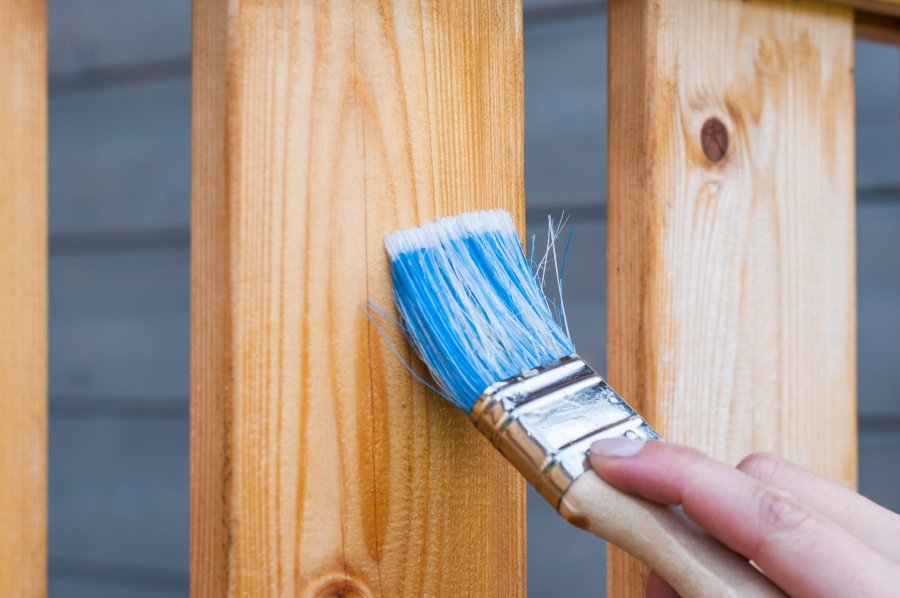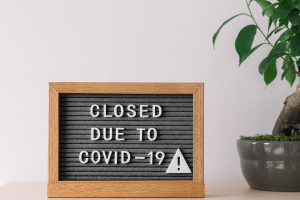
What Property Investment Expenses Can I Claim?
So you’ve taken the plunge! You’ve bought that alluring investment property. And you’re more excited than a Cheshire cat with a fresh bowl of Whiskers with hundreds and thousands on top.
Now what?
Time to start collecting receipts, open a new manilla folder, sit down with the calculator and hopefully start collecting rent. You can almost taste that extra income, but you find yourself staring cross-eyed at the balance sheet, wading through countless articles on tax deductable items for investment properties, and your stomach starts to churn as if you actually ate that bowl of sardines meant for the cat!
ASK US about Property Investment and Capital Gains Tax at Knox Taxation and Business Advisory in Boronia. We’ll take you through the information you need to understand when it comes to what you can claim as expenses (both immediately and in the long term). It’s important to know exactly where you stand right from the word go – and preferably get a handle on it before you sign the Deed of Purchase. When you need expert accounting assistance, Knox Taxation and Business Advisory is only a phone call away.
At Knox Taxation and Business Advisory, we’re much more than ordinary Accountants. We know about making an investment of any sort, how to help you grow, what you need to know to be financially protected – and how to explain everything until it sinks in, in plain English.
Coral Page, Principal of Knox Tax, with over twenty years in practise as an Accountant in Boronia, certainly knows a thing or two about Capital Gains Tax and how it relates to Property Investment.
As promised, Coral’s keen to share more in Part 4 of her series of information about Capital Gains Tax and Property Investment – to help you plan, prepare and get the most return from your investment. And there are some pitfalls to watch out for as well…
Read on for more FAQs.
WHAT EXPENSES CAN I CLAIM WHEN I PURCHASE AN INVESTMENT PROPERTY?
Typically, there are four category questions that we’re deftly able to answer, and they are explained as follows:
PRIVATE INVESTMENTS
If my property investment is private in nature (e.g. it’s a holiday house) how do I know what is and isn’t deductible?
Put simply, if your investment property is not earning rental income, then your expenses cannot be deducted.
Expenses on a vacant block of land need to be capitalised and included in the cost base for the Capital Gains Tax calculation – unless the property is earning (for example) agistment or farming lease income.
If your investment property is a holiday home and it’s let for part of the year, then your expenses must be apportioned between the rental period and your own private use.
IMMEDIATE DEDUCTIONS
Can we claim an immediate deduction for our investment property in this Financial Year?
This is an area where it’s best to seek professional advice, because it’s so important to get it right.
The list (below) is not exhaustive, but it does outlines the typical deductions we can claim in your Annual Rental Property Return. In order to claim these expenses the property must actually be available for rent. You must be able to prove/show that the property is listed for rental with an agent, or that you have at least been advertising it for rental. You must also demonstrate that the requested rent is consistent with the market.
I’ve expanded on four of the most queried deduction categories for you:
-
Repairs and Maintenance Deductions
The deductibility of repairs and maintenance can be a very grey area. For instance, painting would normally be considered maintenance, and be fully deductible in the year the expense is incurred. However, if your investment home was newly acquired, and needed to be painted at that time, the painting is deemed to be part of “initial repairs” – thus forming part of the capital cost. Judgment needs to be exercised to ascertain at which point the painting is no longer classified as “initial repairs”.
Repairs generally relate directly to wear and tear, or other damage, that occurred as a result of renting out the property. For example, if your tenants have damaged the property in the early years, then painting becomes a repair. Should this occur, however, I highly recommend that you take photos as evidence of the damage caused by your tenants.
However, if you are planning to rent out your main residence, or even a property you have inherited, and painting needs to be undertaken to get the property ready for rental, the painting can be claimed in the first year.
-
Interest on your loan/s
If you’ve taken out a loan to purchase a rental property, the interest charged on that loan can be claimed as a deduction. However, the property must be rented, or available for rental, in the income year for which you claim the deduction. If it’s not rented or available for rental the income is not deductible, or it must at least be apportioned.
If you choose a Line of Credit to finance your property purchase, we recommend that the loan not be used for private purposes. If there is a fluctuating balance (due to a variety of deposits and withdrawals) and the loan is used for both private purposes and for rental property purposes, this can quickly diminish the amount of interest that can be claimed as a tax deduction. Be aware that the calculation of interest, that can then be included in the rental deductions, in this type of instance, is also quite involved and time-consuming. Feel free to talk to us at Knox Taxation and Business Advisory. We’ll be happy to explain it further and help you with a formula for making the correct deduction calculations regarding interest on your loans.
-
Body Corporate Fees (or Owners Corporation Management Fees)
These fees, covering general maintenance and administration for your collective property and grounds, are deductible in the year incurred. However, of this fee, funds are put aside by the Body Corporate Management Committee, for a special purpose fund, and thus may be used for capital expenditure. This aspect of your Body Corporate Fees must be capitalised. Need to know more. Call us at Knox Tax.
-
Travel to collect rent, inspect or maintain the property
You may have heard the fallacy that you are entitled to make two trips per year to inspect your investment property. This has (possibly) arisen in the belief that this is reasonable, as far as the Tax Department is concerned. However, claiming two trips per annum, to travel interstate to “inspect rental properties”, is likely to be considered very unusual and raise eyebrows (which could then lead to an official audit by the Tax Department).
On the other hand, if you have decided to personally collect the rent, or undertake the garden maintenance for your property, then monthly visits (twelve trips per annum) would not be unreasonable.
With interstate property, if you fly to inspect the property, stay overnight and return home the following day, the airfare and accommodation expenses would be allowed, provided the whole purpose of the trip was to inspect the rental property. However, should the trip be combined with a holiday, then the expenses may need to be apportioned, taking into account what the main purpose of the trip was. You will need to decide the answer to this question – was the holiday incidental to the trip, or was the inspection of the property incidental to the trip?
Other deductible areas we can help you with:
- Council and Water Rates
- Insurance (such as Building and Contents, and Public Liability)
- Land Tax
- Gardening and Lawn Mowing
- Agents Fees and Commissions
- Advertising for Tenants
- Stationery, Telephone and Postage
- Legal Expenses (incurred in relation to your tenant, not in relation acquisition or disposal)
- Borrowing Expenses.
At Knox Tax, you’ll find the answers you’re looking for about all of your Deductible and Non-Deductible Property Investment expense. We’re your trusted Accountants in Boronia.
EXPENSES DEDUCTIBLE OVER A NUMBER OF INCOME YEARS
(and this includes depreciation of fixtures and fittings)
There are three types of expenses that you may incur for your rental property that may be claimed over a number of income years. They are:
- Borrowing Expenses
- Amounts for the decline in value of your depreciating assets, and
- Capital Works Deductions.
Borrowing expenses
These are expenses directly incurred in taking out your loan. If your total expenses are less than $100, the expense can be written off in the same year. Otherwise, if the cost is more than $100, your borrowing expenses must be claimed over a period of 5 years (or the period of the loan).
Decline in value of depreciating assets
Depreciating assets are generally items than can be easily removed and replaced, and these are not part of the building structure. For example – a free standing bookcase can be depreciated at the higher depreciation rates, although a built-in bookshelf must be claimed at just 2.5% (as part of the cost of construction or special building write-off).
The types of fixtures and fittings (plant and equipment) that the Tax Office allows you to claim deductions for are items such as: stoves, dishwashers, curtains, heaters, air conditioners and carpet. The depreciation rates typically range from 10% to 25% of the cost (per item), which can be claimed per annum. If your list items are less than $1000 in value, they can be added to a “low value pool”, and written off at 18.75% in the first year, and 37.5% thereon.
Plant and equipment costing less than $300 (per owner) can be written off each year. For example – for joint owners, items under $600 can be written off, as the cost of the item can be split between the owners, resulting in a $300 return each.
WHAT ARE CAPITAL COSTS?
Earlier (in Part 3 of this series of information on Capital Gains Tax), I referred to the acquisition of a Building Surveyor’s Report, and it is in this that the capital cost of constructing the building can be written off at 2.5% – for normal residential property, over the next 40 years. This applies to property built after 16 September, 1987, and is often referred to as “special building write-off”.
It is calculated on the original cost of constructing the building, plus improvements at their original cost. It has nothing to do with the purchase price of the home.
Up until May 1997, this building write-off was of significant benefit, as the capital cost claimed did not have to reduce the cost base of the building, and therefore the capital gain wasn’t increased. However, the building write-off applied to properties built since this date reduces the original cost of the property – and therefore increases the capital gain.
For a full explanation about how Capital Costs may be ascertained for your investment property, we recommend seeking professional advice. Better still, come and see us at Knox Taxation and Business Advisory. Not only will we explain the ins and outs of Capital Gains Tax, Capital Costs, and everything else, you’ll also be able to Tax Deduct your visit.
CAPITAL GAINS TAX – friend or foe?
If you acquired a property after 19 September,1985, you may make a capital gain or capital loss when you sell the property (or your share in the property).
- You will make a capital gain from the sale of your rental property, to the extent that the capital proceeds received are more than the cost base of the property.
- You will make a capital loss to the extent that the property’s reduced cost base exceeds those capital proceeds.
- If you are a co-owner of an investment property, you will make a capital gain or loss, according to your ownership interest in the property.
The cost base and reduced cost base of a property includes the amount you paid for it, together with certain incidental costs associated with acquiring, holding and disposing of it (for example, legal fees, stamp duty and real estate agent’s commissions). Certain amounts that you have deducted, or which you can deduct, are excluded from the property’s cost base or reduced cost base.
You may then quality for a 50% discount on the capital gain – provided you hold the property for more than twelve months.
Your capital gain or capital loss may be disregarded if a rollover applies – for example, if your property was destroyed or compulsorily acquired, or if you transferred it to your former spouse under a Court Order (following the breakdown of your marriage).
Often investors become very worried about Capital Gains Tax. However, keep in mind that because of the 50% discount, you will generally not pay more than 15% tax on your gain. This means that you keep 85% of the gain.
WHAT DO YOU GIVE YOUR ACCOUNTANT AT TAX TIME?
Your investment property should be a passive investment that should make you money – without being a burden. If you get your Real Estate Agent to pay for outgoings (such as Rates, cleaning and repairs) for your rental property, and they just invoice you each month, it will minimise your workload. If you have to pay for something yourself, please keep a record and bring to us at tax time. We do not need the receipts.
In Your First Year of Purchase.
You need to ensure you supply us, as your Accountants, with the following:
- Quantity Surveyor’s Depreciation Report (if relevant)
- The Conveyancing Settlement Letter and Notice of Adjustments.
- Real Estate Rental Property Summary
- Bank Statements for your Loan.
- A Summary of the extra payments you have made (with regards to your investment property) that were excluded from the statement from the Real Estate Agent. We do not need to sight receipts. However, it is important to never throw them away, even after five years, as they are essential in the case of an ATO audit, and to assist with calculating any capital gain in the future.
In Your Second and Subsequent Years
Bring along all the above (except for the Quantity Surveyor’s Depreciation Report, and the Conveyancing Settlement Letter and Notice of Adjustments).
Now you have the full picture!
If you’ve missed some of our series on Capital Gains Tax, do take a closer look at the posts on our website. Here you’ll find some handy information about:
- Entering into buying,
- Working out if it’s affordable,
- Structuring your investment
- With whom you should or shouldn’t invest
- Self Managed Superannuation Funds
- Tax Depreciation, and
- TID Variations.
And the next time someone channels Tom Jones and asks you, “What’s new pussy cat?”, you can safely say, “I did my homework, I’ve invested wisely in a property I can afford, my SMSF is now working for me, and with the help of my Accountants in Boronia, at Knox Tax, I’m not giving the Tax Man anything more than he deserves. So there!!
Okay it’s not nearly as simple as that, but with the right help, you can eventually step up from Whiskers to Crayfish – at least for the cat!
The very best advice we can give you is to think hard about any investment decisions, ask the right questions of the professionals at your fingertips, and do your homework.
Don’t wait until you’re in doubt and drowning in dockets. Make an appointment to see us TODAY, and don’t wait until the end of the Financial Year.
We’re always here to help – all year round.
Kind Regards,
Coral Page and the Knox Tax Team
Knox Taxation and Business Advisory – Your Accounting and Capital Gains Tax Experts in Boronia





